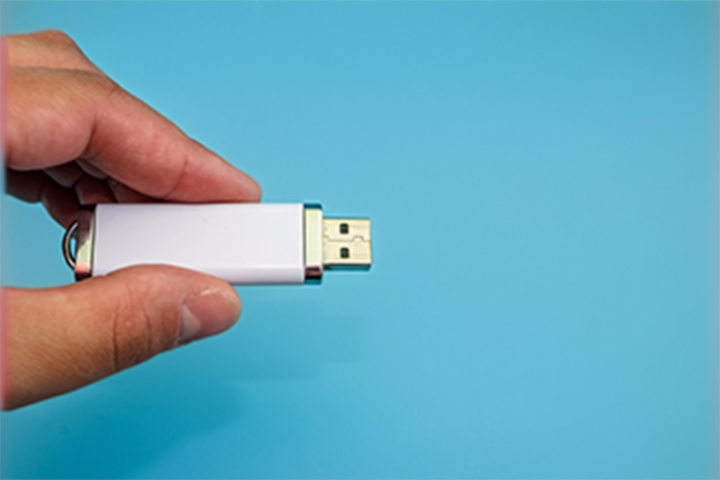Lending money to your children: how to do it and what agreements are needed

Keytrade Bank
keytradebank.be
October 13, 2022
(updated October 18, 2022)
7 minutes to read
Real estate, a car or a company: does your son or daughter have lofty ambitions that require a major investment? If so, you may well be willing to lend them something. What do you need to take into consideration?
Both the bank and the parents can support their children when they need money. This can be done by providing a gift, for example. The big advantage here is that you do not need a notary to make a simple gift of money. In this case, gift tax and inheritance tax do not need to be paid (provided the parent making the gift is still alive three years later). The major disadvantage of a gift is that in principle it is irreversible. The gift belongs to the recipient.
Another way to financially support your child is by providing them with a loan. The major benefit of this approach is that the money does not leave your assets for good. You may not need the money right now, but it could come in handy later on, such as when you retire. For your children, the benefit is that they will likely pay a “friends & family rate” of interest to their parents that is more attractive than the bank’s rates. This is especially the case now that interest rates have risen for all kinds of loans, meaning children may have more to gain from asking their parents first.
Lending to your children: what needs to be set out in writing?
First of all, if your child asks for a loan, always check whether they have already talked to the bank. If the bank is unwilling to approve a loan, it may be because it is afraid it will not get its money back. No matter how good your relationship is with your children or how much you trust them, a loan agreement should always be made in writing. In this way, the rules are clear for everyone, and you have a document to fall back on if any problems arise.
You can draw up a private loan contract yourself. Such a contract is signed by all those involved and each party must receive an original, signed copy. The best approach is to have this agreement written out by hand by your child. These are the basic details that must be included in the contract:
- the identity of each party
- the amount in numbers and words, e.g. "for the amount of EUR *****" written by hand by the borrower
- the term of the loan and the date of repayment (otherwise it will be an open-ended loan). You must indicate whether the borrowed capital and interest should be repaid all at once, in instalments or at the request of the lender. If you do not specify a date, you can legally claim your money at any time.
- the interest rate and the amount of interest due
- how the amount is to be transferred and refunded (e.g. by transfer to a certain account number)
- preferably: the reason for the loan (purchase of a car, real estate, renovation etc.)
- the sentence Drawn up in **place**, on **date**, in x copies, of which each party confirms they have received an original copy, followed by the signatures of the parties.
For example, if you lend to your child and their partner, it is best to state that they commit to making the repayment "jointly and severally". If any problems should arise, you will be able to recover the entirety of the remaining debt from either your child or their partner, and not just half from each. Do you have more than one child? Involve all the siblings. This way, they know what agreements are in place and that these agreements can be enforced. This also enables you to anticipate and deal with any envious reactions.
In the contract, it is also best to state what happens if you or your child dies. Examples include if you die and whether the debt should be repaid or not.
Is it better to have this kind of agreement drawn up by a notary?
You can do this, but you do not need to have a loan contract drawn up by a notary. However, you should get it checked by a notary, especially in the case of larger amounts. If the civil status or family situation of the lender and/or borrower changes, you should also inform your notary. They can then check whether the document needs to be modified. A private loan contract is not registered, so you must keep it safe yourself.
A private loan contract is the usual approach. However, you can also opt for a notarised deed for a loan. The advantage of this is that in the event of non-payment you do not have to go to court first to establish the debt, but can immediately lay claim to your child's property using the notarised deed. You can also use the deed to take out an additional guarantee by, for example, having a lien placed on your child’s real estate. A notarised deed is not a necessity, but if you lend very large amounts or want extra guarantees, it is worth considering. If you are uncertain, ask your notary or another expert for advice.
Can you define the purpose of the loan?
If you draw up an agreement without specifying what the money is for, your child can use it to do whatever they want: buying a home, for example, but equally taking a culinary tour of all the Michelin restaurants in Belgium. You should therefore clearly state in the contract what the reason is for the loan.
How much can you lend to your child?
There is no limit. If you lend a larger amount, you should check that it will not negatively impact your own financial situation as a result. Make sure you have enough reserves that you do not end up short of money following unforeseen events or when you retire.
What interest rate should you apply?
As a parent, you are free to do what you want. You might base this on what you would receive if the money remained sitting in a savings account. Returns on your investments can also be used a guide. You can also make an interest-free loan. In that case, you must state this explicitly in the agreement.
Do you pay tax on the interest you receive?
Yes, if you receive interest from your child, 30% withholding tax is due on this income derived from your assets. Your child must deduct the withholding tax and pay it to the tax authorities within a certain period after the loan has been granted or the interest has been paid.
The tax may vary depending on the purpose of the loan. More information about the formalities, what form your child must complete and submit for each payment, and the timing of the payment of the withholding tax can be found on the website of the Federal Finance Public Service.
What if your child doesn't adhere to the agreements? If your child does not pay or does not pay on time, ask why immediately. It could be a temporary problem that will resolve itself.
If a conversation does not resolve anything, you can give your child notice of default in writing. You issue a formal request by registered letter asking your child to repay the money. Late payment interest will start to accrue only after this notice of default.
If all diplomatic measures have been exhausted, you can go to court. The most extreme solution would then be to seize your child’s property.
Can you convert the loan into a gift?
Yes, you can also gift the amount you lent to your child at a later date. By simply cancelling the debt, the loan becomes an indirect gift. If you wish to waive the debt, you must do so by sending a registered letter to your child. Your son or daughter then needs to keep this letter unopened. If questions arise later with the tax authorities, your child should open the letter exclusively in the presence of the tax authorities. Please note that if you die within 3 years of making the gift, your child will still be liable to pay inheritance tax on this amount. This period starts on the date of posting the registered letter, and not at the time when the loan was agreed. If you do not want to run this risk, you can have a deed of gift drawn up by a notary. In that case, you will pay gift tax, but the rates for this are generally much lower than the rates for inheritance tax.


